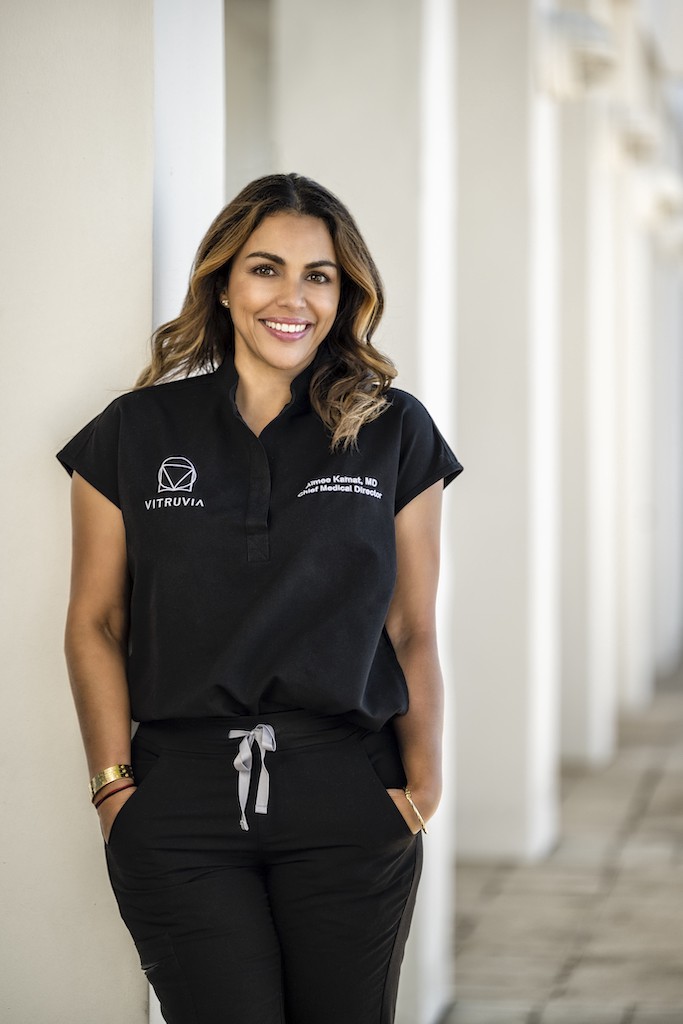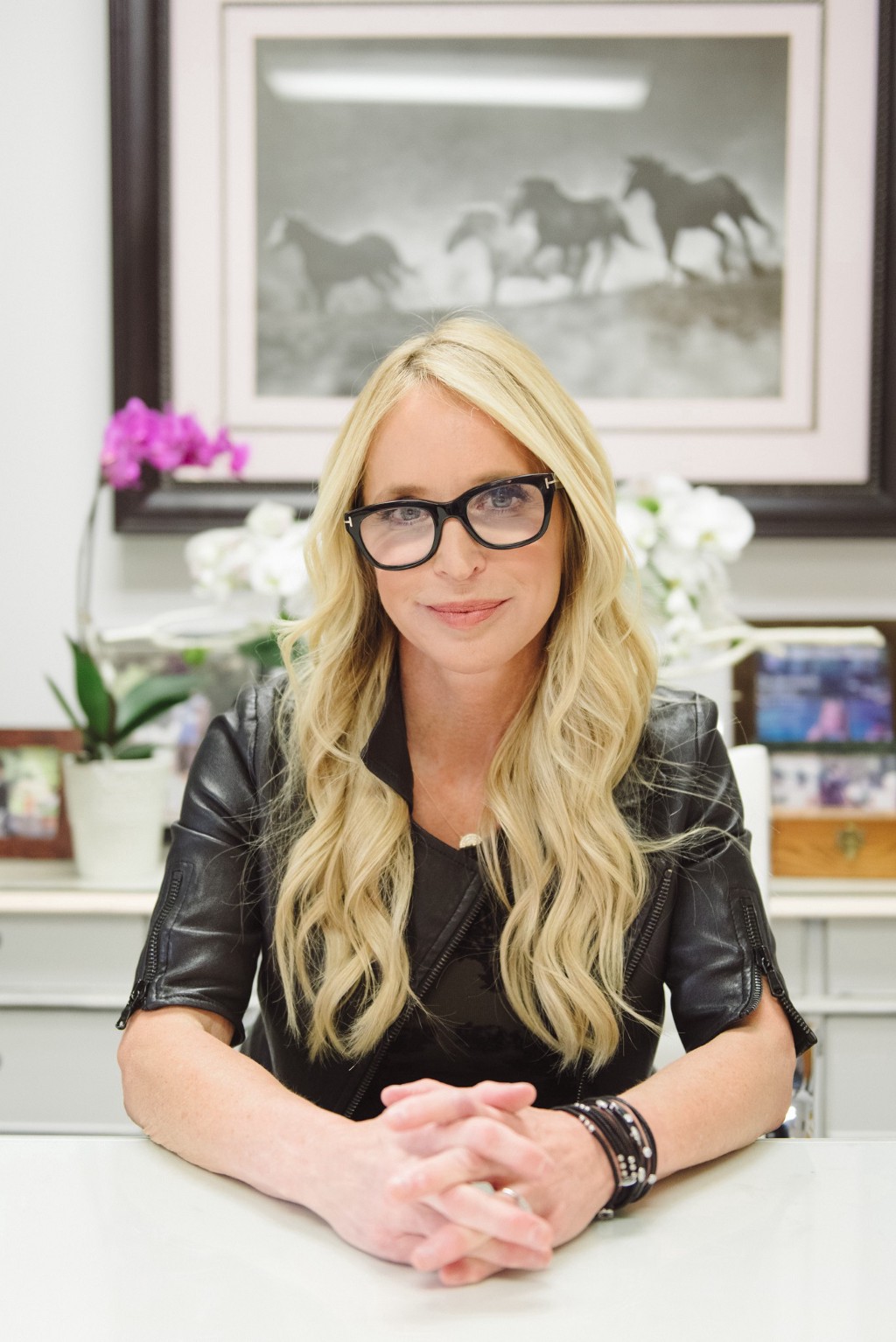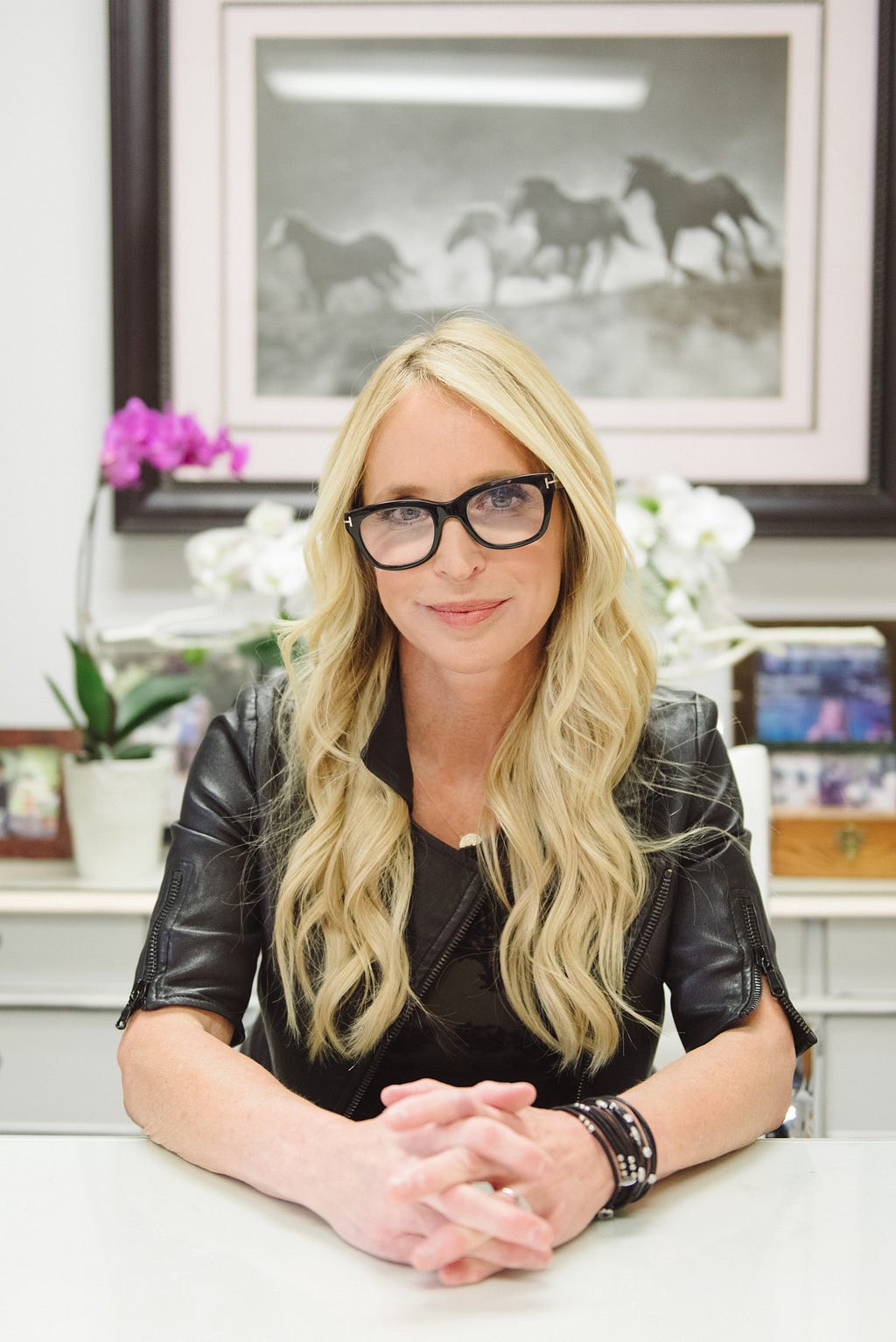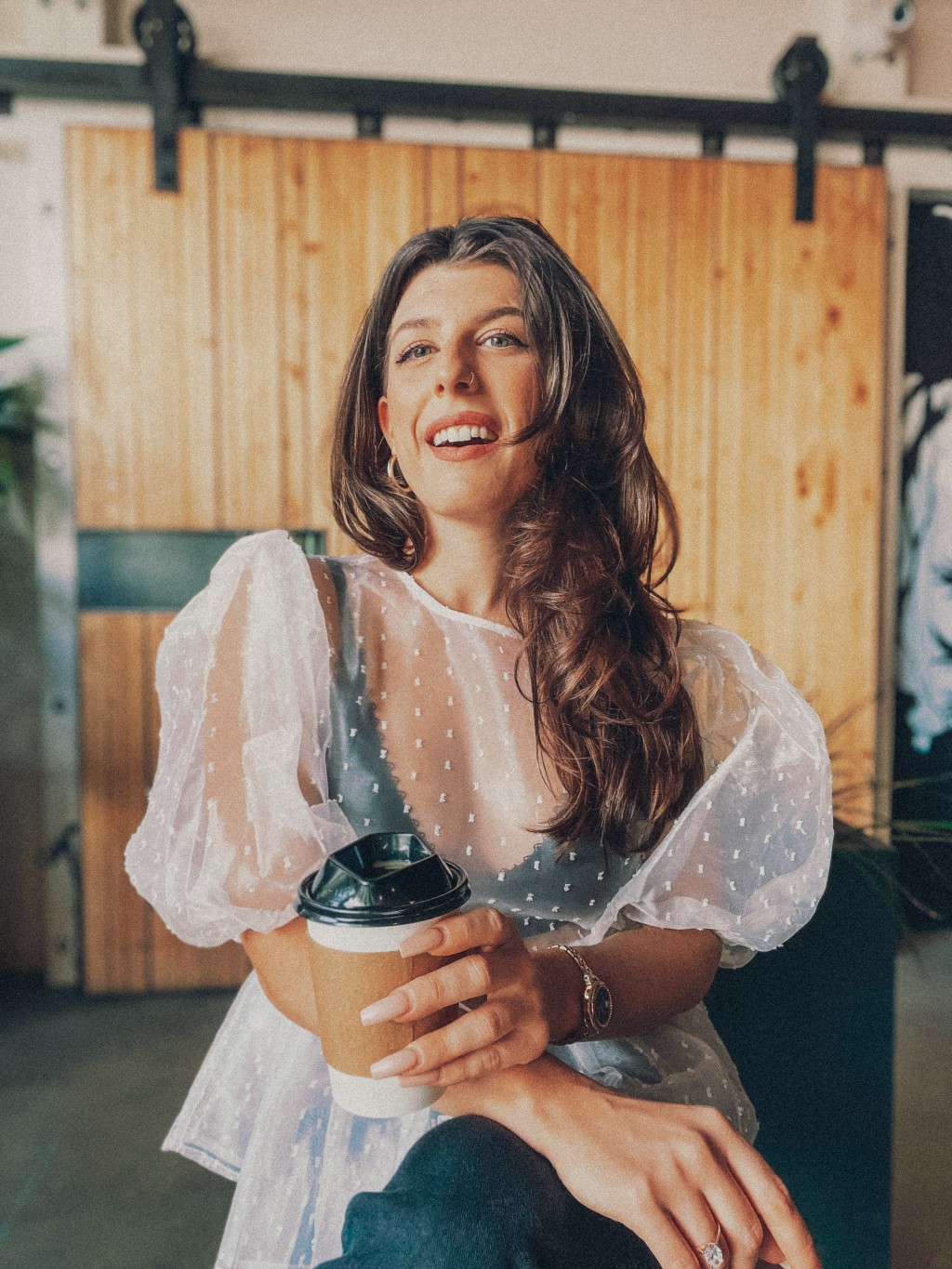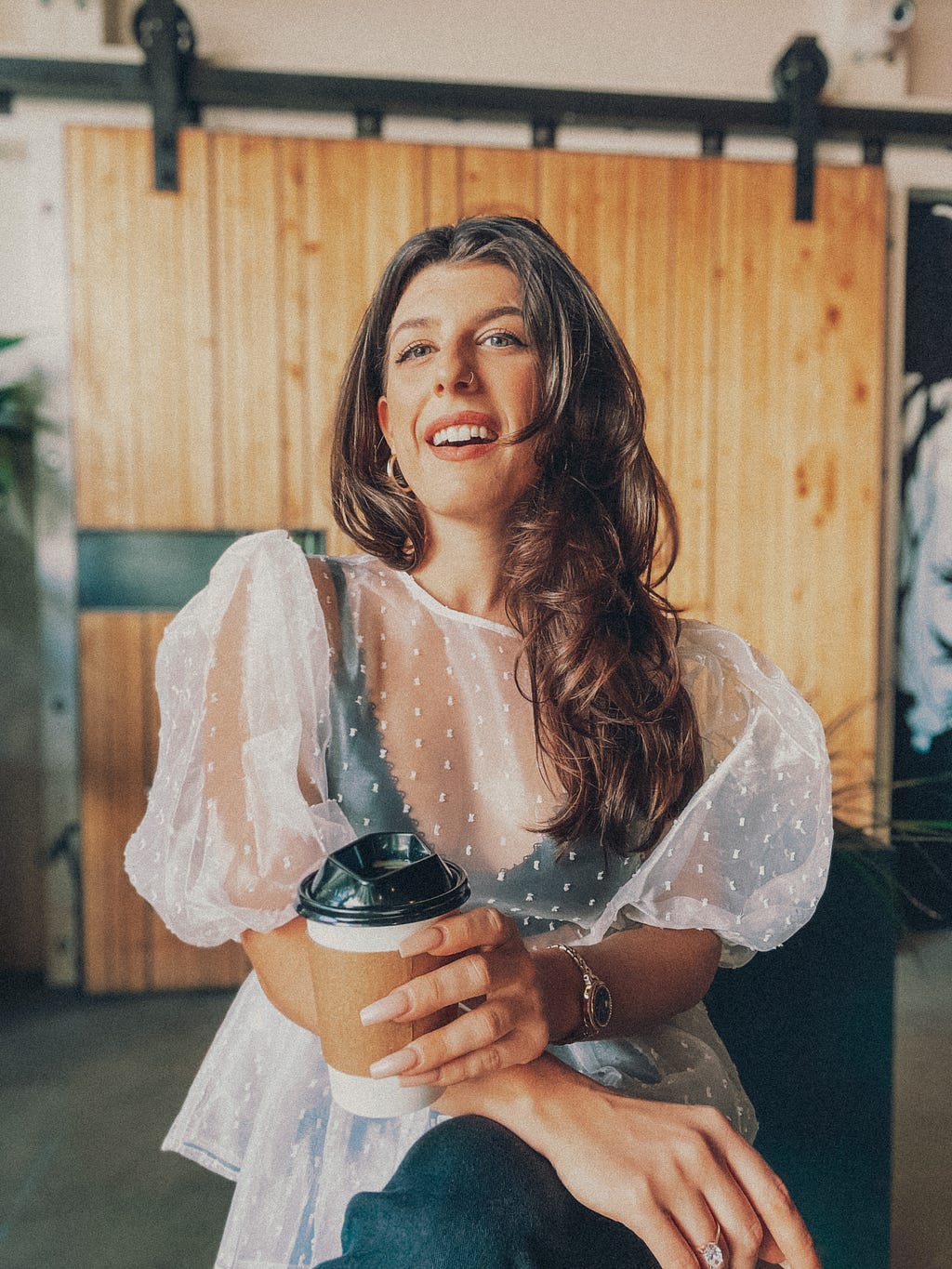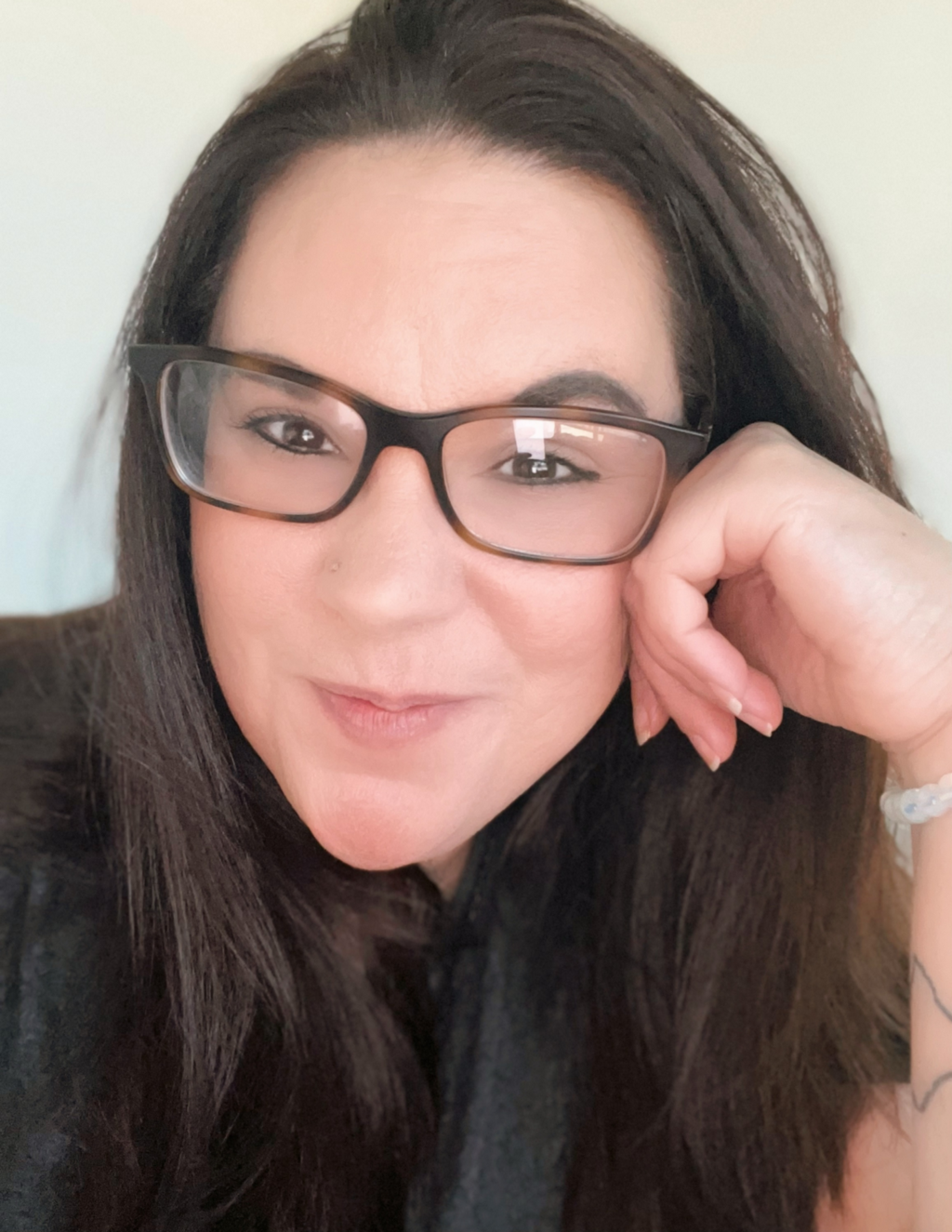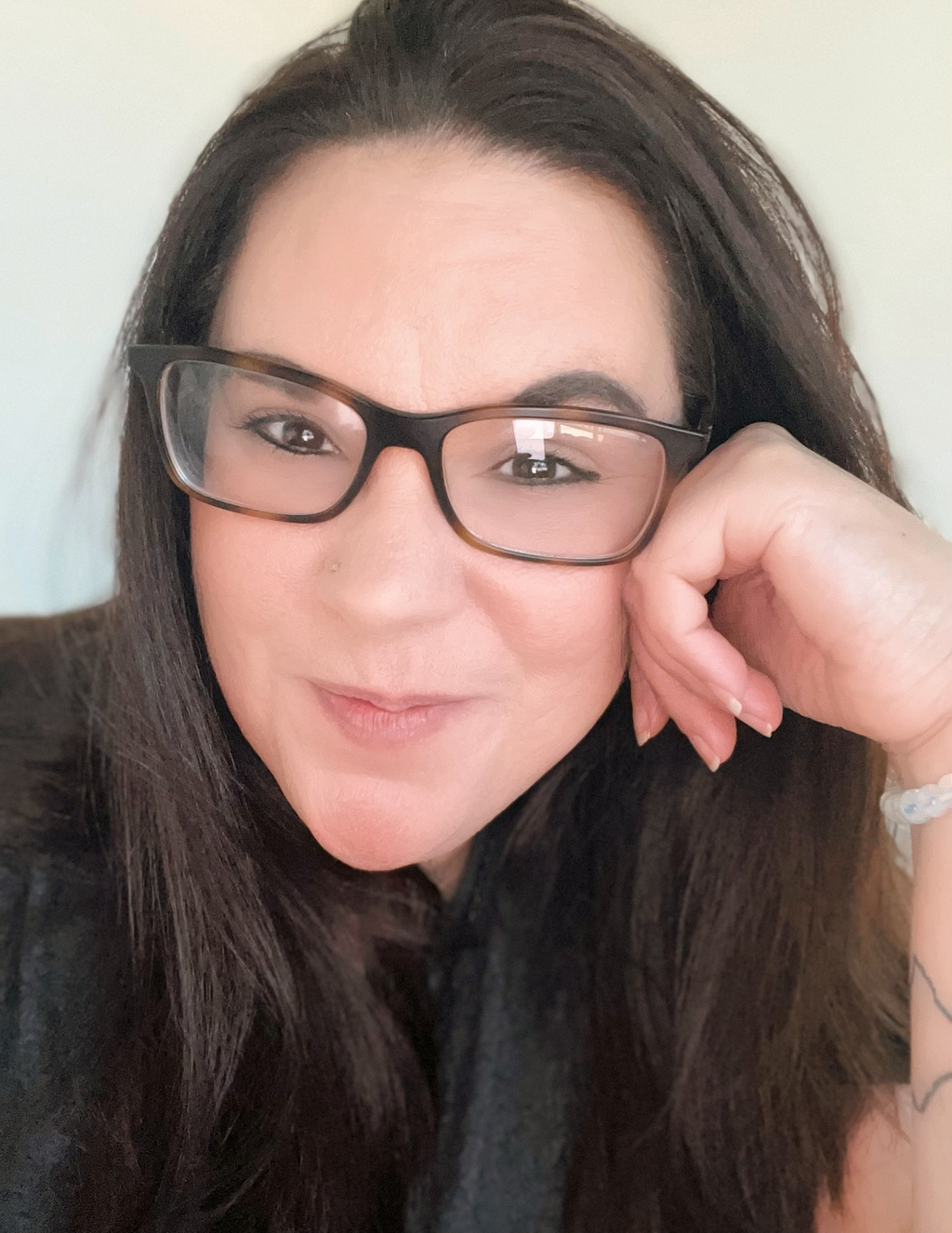Women In Wellness: Dr Aimee Kamat of Vitruvia On The Five Lifestyle Tweaks That Will Help Support People’s Journey Towards Better Wellbeing
An Interview With Candice Georgiadis
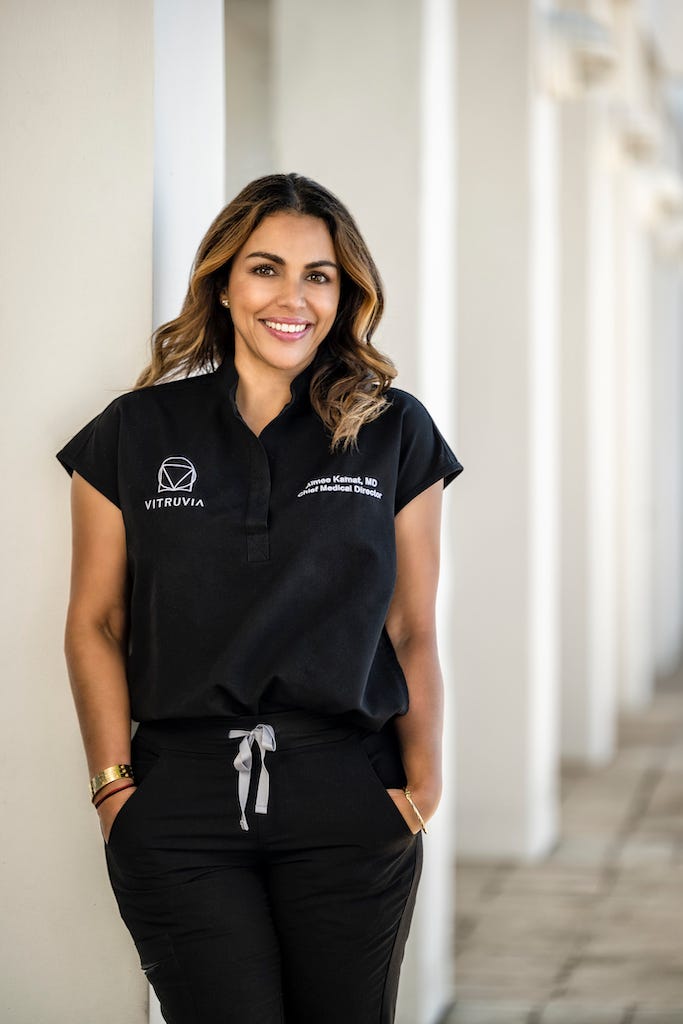
You can’t do it all and you don’t have to. As a physician, as a mother, as a partner and as a friend, sometimes we feel like we have to give everything and we generally do. The problem is at the end of the day, there’s nothing left for us. I’ve learned that I have to put myself first in order to be better for everyone else.
As a part of my series about women in wellness, I had the pleasure of interviewing Dr. Aimee Kamat.
Dr. Aimee Kamat, Chief Medical Officer, has decades of diverse clinical and research experience. Since 2008 she has been an Assistant Professor of Anesthesiology at the University of Miami Miller School of Medicine. Prior to this role, she completed a Post-Doctoral Research Fellowship at the University of Miami Miller School of Medicine prior to her anesthesiology Residency at the University of Miami Miller School of Medicine Department of Anesthesiology. Dr. Kamat, began her clinical career as a Registered Nurse at the Hospital for Sick Children as a pediatric burns and plastic surgery nurse. She received her Doctor of Medicine degree from University of Sint Eustatius.
Thank you so much for joining us in this interview series! Our readers would love to “get to know you” better. Can you share your “backstory” with us?
I always knew that I wanted to be a doctor. I started out in nursing. I was a Pediatric Burns, Plastic Surgery and Urology Nurse at the hospital for Sick Children in Toronto Canada. After my experience there, it solidified my desire to continue to be a doctor. After finishing medical school I completed my residency in anesthesiology at the University of Miami /Jackson Memorial Hospital. I worked as an attending anesthesiologist and assistant professor at the University of Miami and the Miami VA for the next 12 years. A few years ago, I connected with Dr. Abhinav Gautam who had formerly been one of my residents in training. He shared with me his discovery at Vitruvia and I was excited about being a part of this revolutionary therapeutic.
Can you share the most interesting story that happened to you since you started your career? What were the main lessons or takeaways from that story?
One of my most interesting stories happened while I was a resident in training in Trauma. Every story in the trauma department starts with a horrific accident. This was the case with a young teen. It was an injury that usually results in death. But not this time, in order to keep him alive, we had to think outside of the box and in real time ala “MacGyver” and use the tools we had to keep this very specific injury under control to keep him alive. That day always reminds me that no matter what we learn, no matter what the algorithm for a certain treatment is, to never forget to think outside of the box. It’s akin to Dr. Gautam’s philosophy and discovery.
Can you share a story about the biggest mistake you made when you were first starting? Can you tell us what lesson you learned from that?
One of the biggest mistakes I’ve ever made sounds simple enough but sticks with me every day. Not listening to my patient. In this current healthcare climate, doctors face financial strain and time constraints that result in essentially fast tracking a patient during our time together. During my time at Vitruvia, I’ve learned the value of taking the time to listen to the patient. Carefully and patiently listening to the patient correlates proportionally to a successful outcome. Together, we find the source of pain or immobility.
Let’s jump to our main focus. When it comes to health and wellness, how is the work you are doing helping to make a bigger impact in the world?
When you improve someone’s quality of life, the domino effect is that of positivity. We are changing someone who lives in a state of pain and our immobility, whose entire day is potentially flooded with negative thoughts of pain and or suffering which negatively impacts their quality of life and those around them. The word anesthesia in itself means “ the absence of pain”. I can’t think of a better way to make an impact in the world than changing and improving quality of life.

Can you share your top five “lifestyle tweaks” that you believe will help support people’s journey towards better wellbeing? Please give an example or story for each.
Number one would be forcing yourself to practice positivity. Endless peer reviewed scientific studies have been done that support that patients with positive outlooks can dramatically improve outcomes. Secondly, we need to learn how to be grounded in our bodies. In a world of endless exercise trends, sports equipment etc. we sometimes forget the most basic exercise of all. I encourage all our patients to practice savasana- corpse pose in yoga. It simply consists of laying on the floor. It seems like an effortless exercise but yet it is so powerful. It teaches your mind to relearn what alignment is without the constraints of adapting to gravity as our body must when we are standing. Alignment and posture are the core goals of maintaining a healthy spine and connective tissue state. Thirdly, we live in a world where the latest diet trends and or eating patterns govern a lot of people’s lives. If we took food quantity out of the equation, the most important guarantee of health is food quality. If we put as much thought and consideration into our food sources as we do when buying a car for instance our health would benefit exponentially. Of course, lifestyle modification to decrease stress be it physical or emotional is also required. Our physical body is but a mirror of our internal self. If you have a clean, healthy mind, a clean healthy body will follow. Finally the most powerful lifestyle tweak for well-being is having a realistic understanding of our body’s potential. Just like a fine automobile, it requires maintenance and servicing to remain a machine of peak performance. The same should apply to our bodies. Vitruvia for example is a perfect modality to maintain and service our alignment and connective tissue health to keep our bodies running strong.
If you could start a movement that would bring the most amount of wellness to the most amount of people, what would that be?
As I mentioned before, the yoga pose called savasana/corpse pose is one of the most powerful movements we can do. It actually kills two birds with one stone. The physical act of laying on the ground allows the brain to recognize and remember proper cervical and lumbar alignment. Because this is to be done on the floor with your arms at your side, there is no distraction of cell phones, tablets, or conversations. This is where reflection, meditation and emotional/mental health can thrive.
What are your “5 Things I Wish Someone Told Me Before I Started” and why?
- You can’t do it all and you don’t have to. As a physician, as a mother, as a partner and as a friend, sometimes we feel like we have to give everything and we generally do. The problem is at the end of the day, there’s nothing left for us. I’ve learned that I have to put myself first in order to be better for everyone else.
- We can’t “fix”everyone. As much as we set realistic expectations for patients there are just some situations that may not be amenable to treatment or may not achieve the desired results. As long as we remain transparent with prognosis, it’s OK to accept that.
- As much as I explain this to our patients, I have to remind myself to live by this as well: we are in this for the long game. Every day, every hour, every choice we make will affect our health, longevity and well-being. If you make a poor choice, you don’t need to give up. Just remind yourself to make a better choice at the next opportunity.
- As a physician , we are often exposed to a lot of traumatic situations that are scary, sad and or depressing. The easiest way to deal with it is to become almost apathetic to those situations as a defense mechanism otherwise we could easily live in everyone’s sorrow. I did that for many years but it was not healthy. I learned that empathy was OK. But most importantly I learned that after I felt that sorrow it was OK to let it go and not stay with me.
- Finally, the most important thing I wish I had learned early in life is to stop trying to control things that I cannot control. Being able to let go of that unattainable need was priceless. I live a happier and lighter life now.
Sustainability, veganism, mental health, and environmental changes are big topics at the moment. Which one of these causes is dearest to you, and why?
As I mentioned earlier before, I believe that mental health is paramount. A positive outlook on any situation will no doubt improve the outcome. When we remove pain or improve someone’s quality of life, we have caused an unstoppable positive sequence of events that will benefit innumerable amounts of lives. I can’t think of a better karma.
What is the best way for our readers to further follow your work online?
Thank you for these fantastic insights! We wish you continued success and good health.
Women In Wellness: Dr Aimee Kamat of Vitruvia On The Five Lifestyle Tweaks That Will Help Support… was originally published in Authority Magazine on Medium, where people are continuing the conversation by highlighting and responding to this story.


